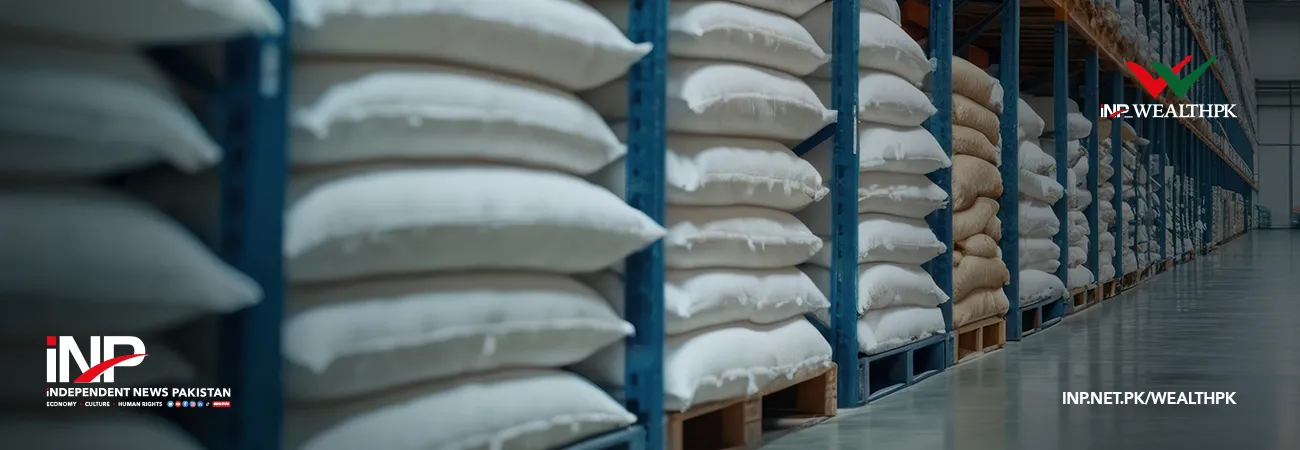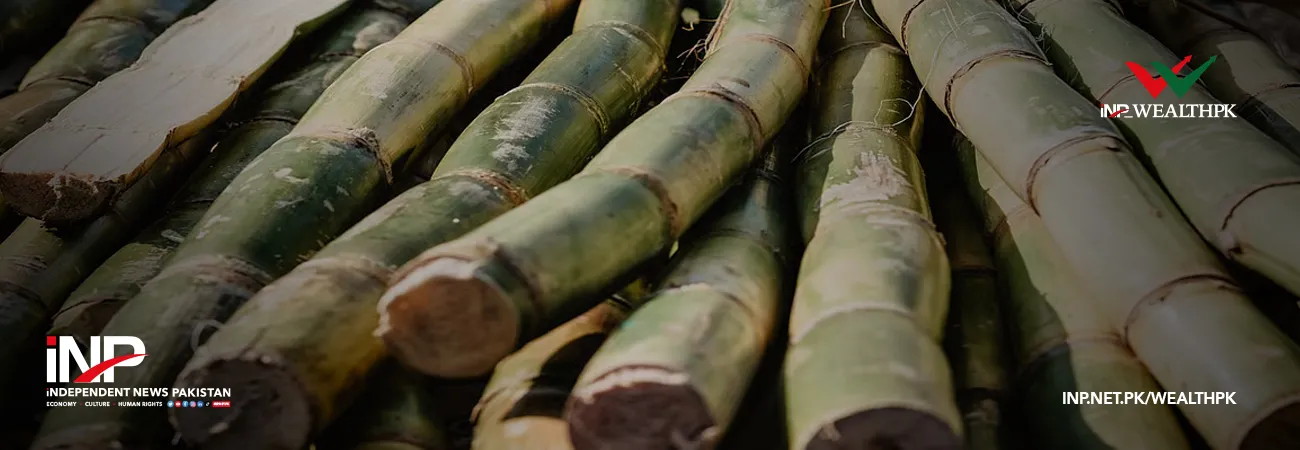INP-WealthPk
BEIJING , March 27: China-Pakistan cooperation in seed, the “core” of agriculture, is high on the agenda as the CPEC enters the second phase to focus on agriculture cooperation and other sectors of social welfare, according to a report published by China Economic Net (CEN). At the China-Pakistan Seed Industry Cooperation and Exchange Forum held last week, agricultural experts from China and Pakistan offered insights on how to further promote bilateral cooperation in the seed industry.
Dr Zhang Shengquan of the Beijing Academy of Agricultural and Forestry Sciences said, "In 2012, we carried out joint R&D on two-line hybrid wheat in Pakistan, and achieved an average increase of more than 20 % in wheat production, and last year, we brought that figure to 50% and even up to 70%." The potential of China’s hybrid wheat is emphasised by Shahzad Ali Malik, CEO of GUARD AGRI, during his interview with CEN. GUAED AGRI was the first Pakistani agricultural company to introduce Chinese hybrid wheat, and despite the “challenge-laden” process, the company remains confident that Chinese hybrid wheat will help boost food production in Pakistan.
The reasons for limited wheat production in Pakistan include low yield potential of seed varieties, mismanagement, high temperature and drought, and severe rust damage, etc. Drought-resistant and infertility-resistant traits of Chinese hybrid wheat make it a suitable variety to be introduced in Pakistan. Dr Li Hui from the breeding team of the Hebei Academy of Agricultural and Forestry Sciences said that China’s Hebei, with its natural conditions similar to those of Pakistan, has been dedicated to the R&D of draught-resistant, water-saving wheat varieties to achieve replicably stable and huge production.
According to the report, nearly 30 water-saving wheat varieties bred by his team are expected to be introduced into Pakistan through the China-Pakistan Agricultural and Industrial Information Cooperation Platform. Pakistan has long been a huge soybean importer, with its import volume increasing annually and consuming colossal foreign exchange reserves. Dr. Irfan Afzal, associate professor at University of Agriculture, Faisalabad said that Pakistan began to cultivate soybean as early as 1960s, but due to natural conditions, especially overlapping planting time of soybean and wheat, "we only have 120 days for soybean cultivation each year, but Brazil, the soybean powerhouse, has six months." Ali Raza, a post-doctoral research fellow at Sichuan Agricultural University, learned the "maize-soybean intercropping technology" from his Chinese supervisor, Professor Yang Wenyu of Sichuan Agricultural University.
He introduced the technology to Pakistan and transformed the local agriculture sector. The intercropping technology was once hailed as a possible second Green Revolution in grain and soybean production in Pakistan by Syed Hussain Jahania Gardez, Provincial Minister of Punjab for Agriculture. At the forum, he said CPEC can support agricultural development and help achieve the goal of agricultural modernisation in Pakistan, especially for poor regions. He hoped to develop such fields "as high-quality rice variety research, irrigation systems, agricultural mechanisation, and we also want to work with China in more fields including cotton production, R&D of hybrid seeds in maize." The intercropping technology was acclaimed by the Minister mainly for four reasons, Professor Yang Wenyun of Sichuan Agricultural University explained.
First, the technology can greatly save foreign exchange reserves arising from Pakistan's soybean imports. Second, maize-soybean intercropping can achieve a planting and breeding cycle, which lead to increased farmers’ income and reduced environmental pollution by facilitating the raising of cattle and sheep. Third, it can make the land fertile with green and sustainable approaches. Fourth, Pakistan can enhance crop breeding and cultivation and its mechanisation level by introducing Chinese soybean varieties and cultivation technologies including seeders, sprayers and harvesters to the country. The intercropping technology is expected to increase farmers' income by up to 23% to $654, said Ali Raza. "If we roll out the intercropping technology in maize cultivation nationwide, we would produce 6.5 million tons of maize and over 900,000 tons of soyabeans," he said. Hezhong, Director of Cotton Research Centre at Shandong Academy of Agricultural Sciences told CEN that China currently accounts for 25 % of the world's cotton production, with 12 % of the world's planting area.
The high cotton productivity in China is due to the "dark technologies in cotton cultivation. Pakistan urgently needs to increase cotton yield per unit area. According to the Ministry of National Food Security and Research of Pakistan and the Pakistan Bureau of Statistics, Pakistan's cotton production will reach 7.7 million bales in FY2020-2021, with demands for at least 6 million bales yet to be met due to a 10% decrease in cotton acreage. Mr Jawed Salim Qureshi, CEO of Four Brothers in Pakistan expressed the desire for urgent cooperation, "we are in urgent need of cooperation with China in terms of cotton cultivation. Pakistan needs to deal with pests and the impacts of global warming on cotton yield.
The agricultural sector between China and Pakistan, scientific research cooperation will not only contribute to Pakistan's cotton production, but also to the global cotton production, and we would like to see Pakistani products exported to all parts of the world, "he said. The China-Pakistan Seed Industry Cooperation and Exchange Forum marks the first industry-specific forum since the inauguration of the China-Pakistan Agricultural and Industrial Cooperation Information Platform in January. The forum has gathered officials, experts and entrepreneurs in bilateral agricultural sectors, and explored more avenues for cooperation in promoting seed products and a channel for exchanges and cooperation in the development of technology in seed industry between China and Pakistan.
The third industry-specific webinar is expected to take place in April. At the forum, Syed Fakhar Imam, Pakistani Federal Minister for National Food Security and Research said Pakistan has been creating a friendly environment in the past few years to promote the seed industry in Pakistan. The Pakistani seed industry holds great potential to meet local needs and to further export Pakistani seeds to other countries, he said. The seed industry has made strides with bilateral cooperation and support, and it will further benefit from the China-Pakistan Agricultural and Industrial Cooperation Information Platform. "This platform can help us further promote agricultural modernisation and alleviate poverty in the country." Zhengwu, Acting Consul General of China’s Consulate General in Lahore, encouraged Chinese seed companies to draw on their seed and technological advantages to enhance cooperation with Pakistan and help the country innovate the seed industry to maintain steady and healthy development. " We hope the seed sector in both countries will make the full use of the platform and enhance bilateral agricultural trade and cooperation by promoting bilateral project coordination and resource integration.
Credits: INP-WealthPk





